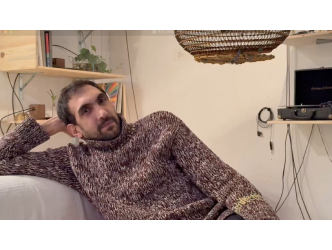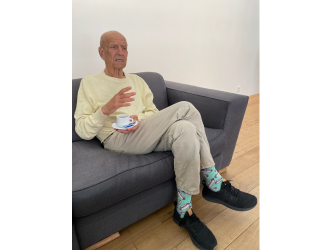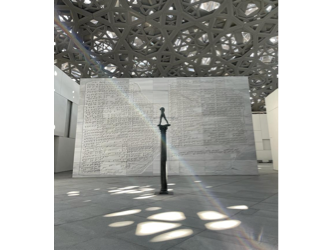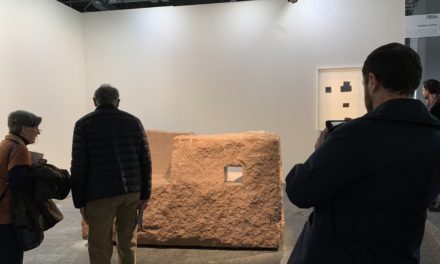It certainly isn’t politically correct to say so but artists that are categorized as “African American” are in fashion right now.
Their work isn’t all of the same quality, but in the United States in particular a large number of galleries are now keen on having an African American artist who will address (or not) the burning issues of American society.
This could be happening now as a result of the crucial work of Kerry James Marshall, who toured America in 2016 and 2017, exhibiting at the Met Breuer among other places – but not enough abroad (see the report on this subject) – and who has managed to legitimize a kind of artistic creation that addresses a part of the population that has been largely overlooked by the rest of society.
It could be because of the film masterpiece by Arthur Jafa, “Love is the message, the message is death”, acquired again by the Met and the Luma foundation in Arles, which is showing around the world (cf the report on the occasion of the film’s screening in London last October) and seeks to create a new African American aesthetic guided by music.
It could also be because too many crimes have been committed in this community including by law enforcement, and the art world, despite its taste for money, remains – thank God – still guided by a few ideals from time to time.
If anyone has contributed to this state of affairs, it would be Thelma Golden. The director and head curator of the Studio Museum is an activist who forever links society and art.
In a conference in 2009 she didn’t hesitate to present the first black artist as “J. J.” from the 1970s series Good Times, which starred a black American family and depicted a black artist on prime-time TV for the first time.
And like Kerry James Marshall, like Arthur Jafa, blackness is her priority. “My overall project is about art and specifically about black artists. Very generally, how the art can change the way we think about culture and ourselves”.
The Studio Museum in Harlem has been closed since the end of last year, but it continues to operate by putting on occasional events in Harlem while awaiting the unveiling of a new building, due to open in 2021, designed by the British architect David Adjaye.
This March Thelma Golden was awarded the Getty Medal for transforming the Studio Museum into “one of our nation’s most dynamic visual arts institutions, inspiring to professionals and public alike” according to James Cuno, president of the J. Paul Getty Trust.
In New York on 16 and 17 May Sotheby’s will be selling artworks as part of “Creating Space: Artists for the Studio Museum in Harlem”, an event to raise money for the new building, featuring works by Rashid Johnson, Glenn Ligon, Julie Mehretu and Mark Bradford among others.
Meanwhile, a few weeks ago Thelma Golden agreed, not without some prior efforts, to play the game of five questions in fifty seconds. She is not the easiest of people but I eventually managed to obtain her answers, which are spontaneous, clear and highly articulate.
Do you think there is a kind of revolution underway in the expression of African American artists today?
Is “African American” an appropriate term?
Do you think there’s a difference of situation between African American artists and African European artists?
What is your next dream?
What would you like people to remember about you?
Finally Grégoire Billault the director of Sotheby’s Contemporary department in New York describes the content of the charity auction to benefit the Studio Museum in Harlem:
Support independent news on art.
Your contribution : Make a monthly commitment to support JB Reports or a one off contribution as and when you feel like it. Choose the option that suits you best.
Need to cancel a recurring donation? Please go here.
The donation is considered to be a subscription for a fee set by the donor and for a duration also set by the donor.















